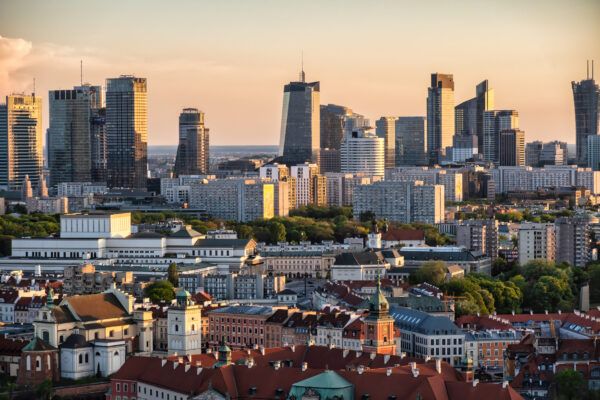In Poland, transport-related emissions of nitrogen dioxide (NO2) are the second biggest contributor to unhealthy air. More than 46,000 people die prematurely due to poor air quality each year. Krakow, Poland’s second largest city, topped global air pollution rankings earlier this week with NO2 frequently at five times the World Health Organization’s air quality guidelines.
In a bold move to address this problem, Krakow’s Municipal Council will introduce a Low Emission Zone (LEZ) – the first LEZ regulation in the Central and Eastern European region. The LEZ will also ban highly polluting vehicles, such as older diesel cars. Expected to reduce NO2 by 50% by 2026, the LEZ will cover the majority of the city and benefit over 800,000 people’s health.
This is a promising signal for European action on clean air. Other cities are considering similar measures and, just last week, the Mayor of London announced a major expansion of London’s Ultra Low Emission Zone (ULEZ).
Poland is one of the EU’s most ‘motorized’ countries, with one car for every two residents and a high proportion of old vehicles still in use. The average vehicle tends to be over 14 years old compared to 9.4 years in the UK. The scale of air pollution in Krakow calls for strong interventions at pace.
Three years after the introduction of the ban on burning coal and wood, the city authorities decided to take a much-needed step, which is to reduce pollutant emissions from car traffic… The change introduced by the Krakow Councilors supports the city’s residents – about 65% of people in the surveys conducted by KAS supported the elimination of the movement of older diesels from the city.
Anna Dworakowska from Polish Smog Alert
The Polish clean air movement has played a pivotal role in advocating for clean air regulation. By securing changes to national electromobility law in December 2021, campaigners enabled the roll out of Krakow’s LEZ. Clean Air Fund supported Polish Smog Alert, the Foundation of Electric Vehicles Promotion (FPPE), Profeina, Polish Alternative Fuels Association (PSPA), and the International Council on Clean Transportation (ICCT), to support the City of Krakow with:
- Air quality data collection and the LEZ design
- Policy drafting and stakeholder engagement
- Public outreach and communication
The first phase of the Krakow LEZ will restrict vehicles with EU exhaust emission standards Euro 1 petrol and Euro 2 diesel vehicles, before tightening restrictions further in 2026. After then, only cars with a minimum norm Euro 3 for petrol and Euro 5 for diesel will be allowed in the city (20% of the current fleet will be affected). This next phase in 2026 will lay the foundation for the start of what should be a series of critical clean air interventions which will benefit the health of the people of Krakow and also reduce climate-damaging emissions in the city.
Vehicles with diesel engines have been treated more severely because, compared to gasoline counterparts, they emit several or several times more pollutants from exhaust gases. For comparison, a car from 2001 with a gasoline engine emits a similar amount of pollution as a car from 2014 with a diesel engine.
Bartosz Piłat, transport coordinator at the Polish Smog Alert.

